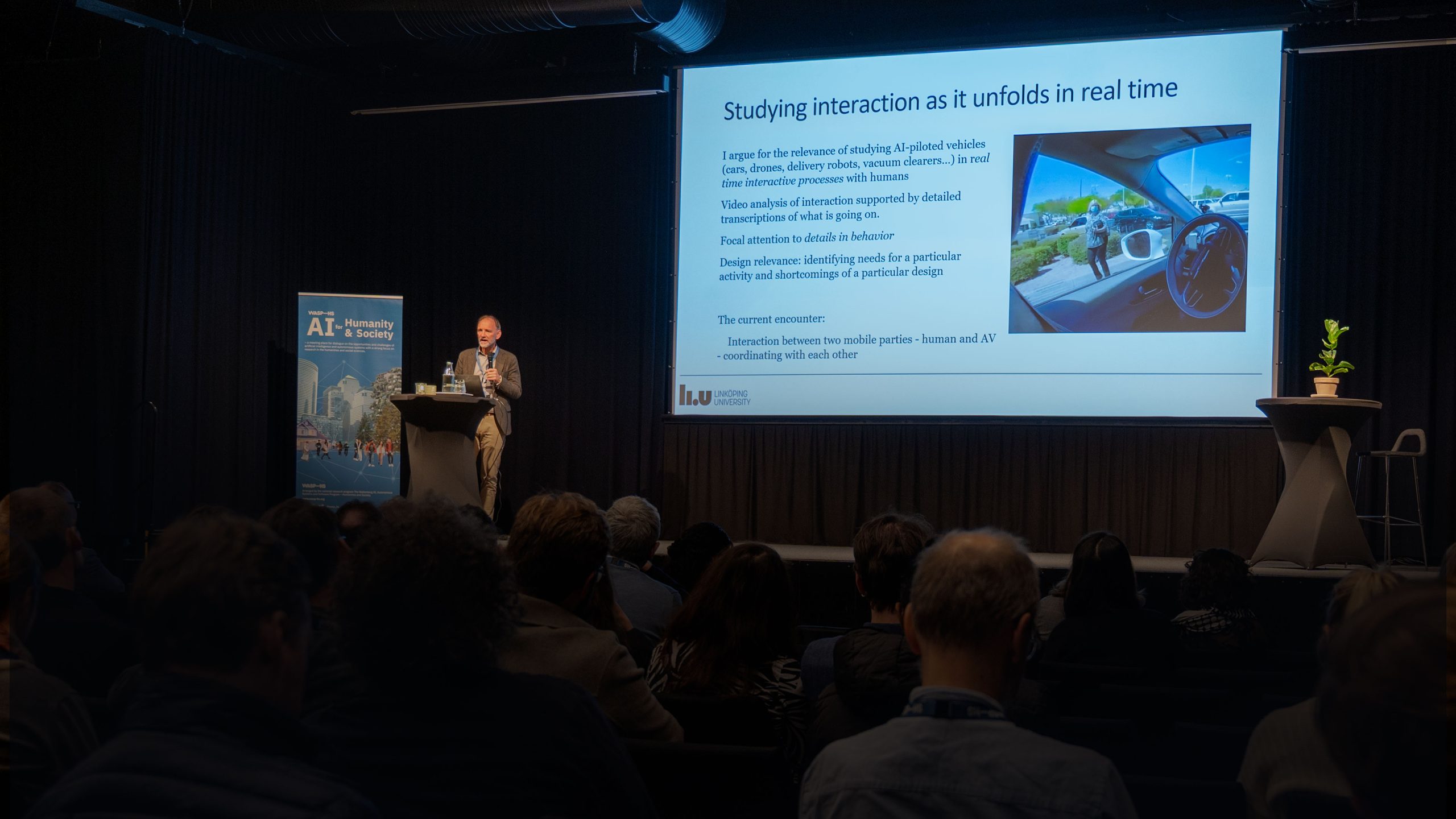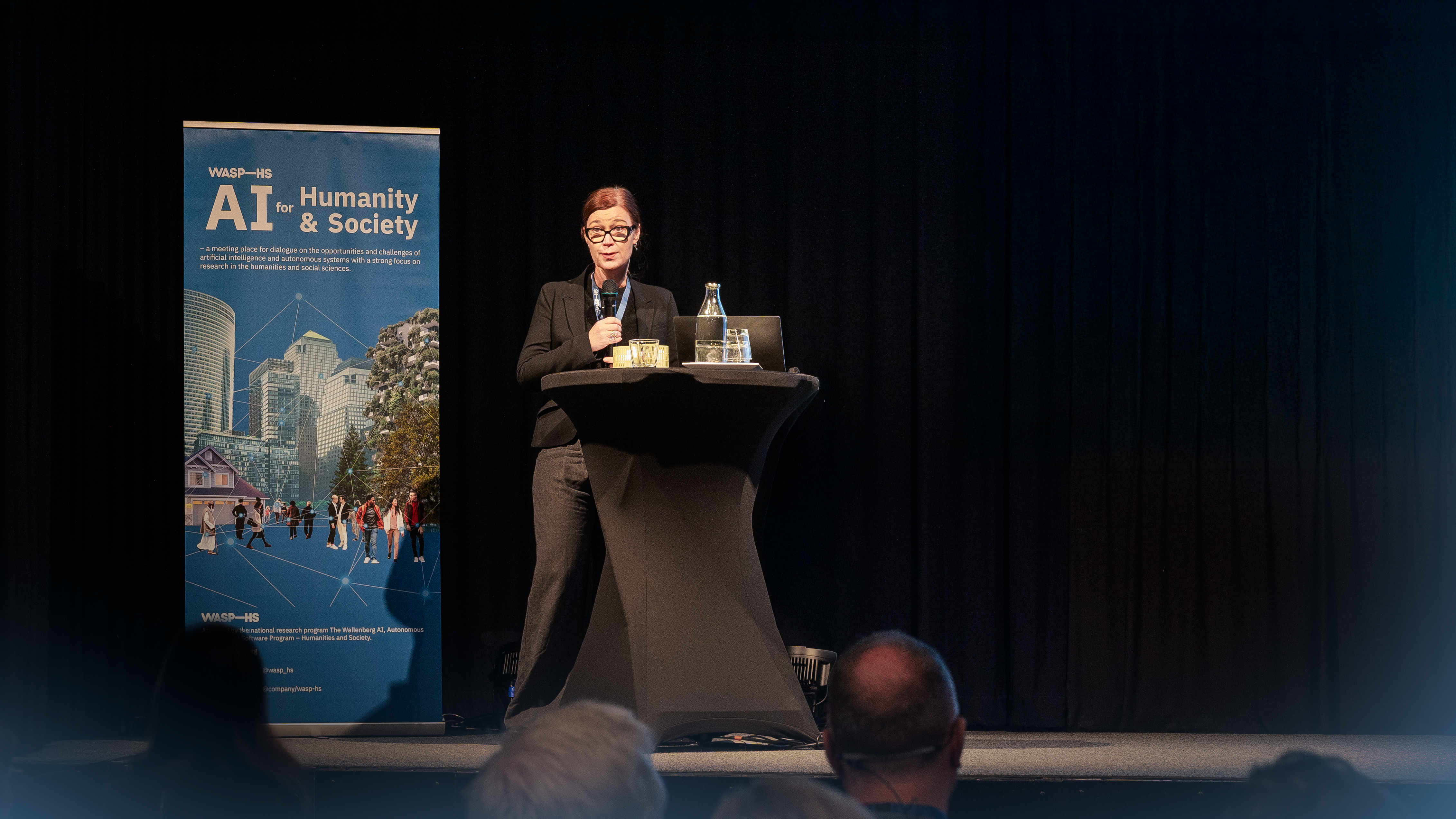“Ask more questions!” Virginia Dignum, Program Director, summarises the first WASP-HS conference on Artificial Intelligence, Humanity and Society (18 November, 2020).
Last Wednesday, we realised our first WASP-HS conference on Artificial Intelligence, Humanity and Society (AI4HS2020). After the cancellation of the edition in March, and several changes of format and broadcasting location since then, I was very much looking forward to this event.
I was definitely not disappointed: what a great day it was! From the introduction by Peter Wallenberg Jr., to a lively interview with Anders Ygeman, Minister for Energy and Digital Development, to the great example of human-AI enrichment in the form of the musical intermezzos featuring AI generated music played by humans, and of course the two panels, it was an afternoon packed with food for thought!
The two panels, focusing on social and human impact respectively, provided a good mix of participants from academia, industry and public organisations, and drill into the core of the WASP-HS program. What impact are AI and autonomous systems having on society, on people and on the way we interact and live together now and in the future? What can we learn from studying this impact and how can a multidisciplinary approach to these questions lead to better AI? (And what is ‘better AI’ by the way?)
In the fast moving world of tech, which seems to be even faster when AI is considered, we need to work together to ensure that no one is left behind and that Sweden can lead not only in industrial competitiveness but most importantly in ensuring justice, equality, wellbeing, environmental protection and a democratic society. Even though these principles are often taken for granted here, this year’s crises and events show how fragile democracy and well-being can be. As referred to by several panellists, AI is revealing the fragility of our democracy and can contribute to an increased imbalance of privileges and opportunities.
An overconfident approach to the development and use of AI technology because ‘we can’ can both support and hinder these principles. The aim of WASP-HS is to provide the means to understand when, how, and what for ‘we should’ develop and use AI. Ensuring a meaningful role for humans, a so-called human-centred approach to AI, and facilitating a shared understanding of the grand questions that raise from the increased dependency on technology for decision-making, are the main drivers of our program.
Because AI does not stand alone. Because AI is for people, by people and about people. Because AI is not a race. Because ethics and responsibility are not obstacles for innovation but the stepping-stone for innovation and well-being.
We all need to be able to trust that AI and autonomous systems are developed and used for the benefit of all. As brilliantly illustrated by panel members, education and regulation are cornerstones to ensure that all can benefit from the potential of AI and autonomous systems. It is the responsibility of corporations and governments as well of all of us to ensure trustworthy and beneficial AI. In my concluding remarks at the conference, I stressed the one sentenced that in my view summarized the day: “ask more questions!”
It is our responsibility as citizens to ask more questions. It is our responsibility as researchers to investigate more questions. It is the responsibility of corporations to provide transparency about how they are answering which questions. It is the responsibility of governments to ensure that questions can be asked and answered.
I am already looking forward to next year’s edition (spoiler alert: it will take place on 18 November 2021)! In the meantime, as a multidisciplinary research program, we look forward to all your questions!





